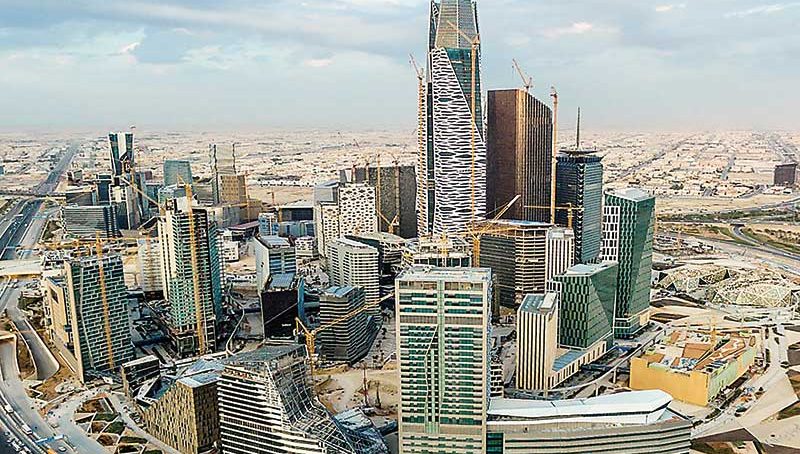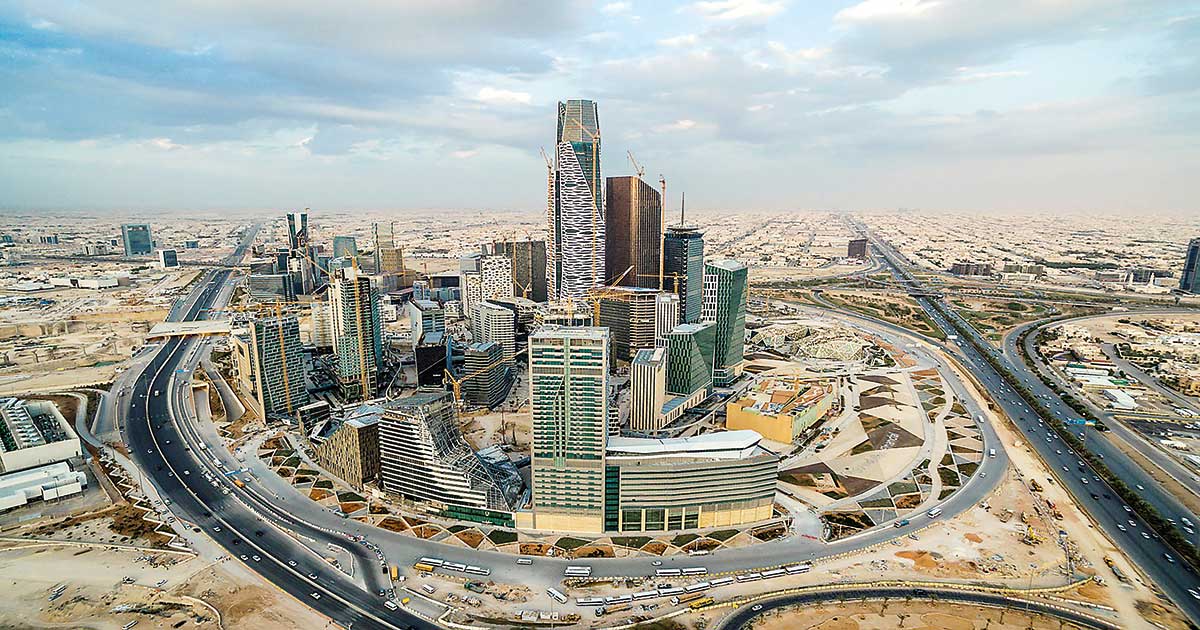‘A Vibrant Society’, ‘An Ambitious Nation’, ‘A Thriving Economy’, these are the game-changing, transformative and innovative goals mapped out in the Saudi Vision 2030 plan. A Kingdom that was previously known for being an enclosed nation is today going big. Once the Saudi government realized the need to revive the nation and diversify its economy away from oil, the hard work to bring about a transformation began in earnest. Ralph Nader, CEO of Amber Consulting, highlights the opportunities that this reinvention is producing
Huge hospitality potential
As the largest country in the Arabian Peninsula, Saudi Arabia has several regional advantages in the hospitality industry, including its sizeable population of 32 million – the biggest among its Gulf Cooperation Council (GCC) peers. Accounting for roughly 60 percent of the GCC’s entire population, this evolving consumer market will be key in supporting the Kingdom’s bid to become a regional hospitality pioneer.
Tourism growth
According to new research released by the World Travel & Tourism Council (WTTC), Saudi Arabia’s travel and tourism industry is growing at a much faster rate than the Kingdom’s broader economy and now accounts for 9.4 percent of total GDP. In addition, arrivals are on the rise, with visitor numbers expected to reach 22.1 million by 2025, according to the WTTC. Bookings to the country are today believed to be worth more than USD 25 billion annually, making them the highest in the MENA region.
International hotel groups and brand appearances
The number of major hotel groups and brands – both international and local – choosing to set up operations in the Kingdom is rising. Riyadh and Jeddah continue to rank highly in the Middle East’s top 10 most active cities for hospitality development. Riyadh is now home to 119 properties comprising 16,441 keys, with 48 projects in the pipeline, while Jeddah’s inventory stands at 92 hotels, offering 11,276 rooms.
Increase in hospitality investment
The Saudi economic development plan highlights the importance of investing in tourism as a key generator of national income and creator of job opportunities in the future. “Saudi Arabia has invested in major tourism projects in various parts of the Kingdom,” said the chairman of the board of directors of the Saudi Commission for Tourism and National Heritage (SCTH), Ahmad Al-Khateeb. Fueled by increasing demand from pilgrimage, business and leisure visitors, and the ongoing diversification of the Kingdom’s economy through Vision 2030, tourism infrastructure and hospitality projects are and will continue to gather momentum, driven forward by both private and public capital investments.
Facilitating stays
In addition, the government began issuing tourist visas at the end of September 2019 which is available to citizens from 51 countries at a cost of 440 Riyals (about USD 118). The visas will be valid for 90 days. Eligible tourists will be able to apply for the eVisa in advance or when arriving in the Kingdom.
An A+ tourism strategy: Saudi Seasons
Having habitually drawn visitors from around the world through pilgrim tourism, Saudi Arabia is now repositioning itself as a leading global destination with universal appeal by introducing cultural attractions and high-end facilities. In June 2019, Jeddah witnessed for the first time in the history of the Kingdom a large-scale program of events that celebrated the best in music, art, culture and sports. Titled Jeddah Season, the festival, which represents the first in a series of 11 Saudi Seasons, was deemed a resounding success, in part, significantly, due to the world-class dining experiences it offered visitors. Internationally renowned restaurant brands put in an appearance at the festival, including Zuma, Mamo, Nobu, Coya, Scalini, Signor Sassi and Nusret, bringing their culinary culture and experiences to the Saudis. The Riyadh Season follows on from the Jeddah initiative, scheduled to take place in mid-October and continue for around two months. The event is expected to attract about 20 million visitors and will once again feature several cultural, entertainment and sports activities. In addition, many international restaurants are set to open their doors for the occasion.
The winds of change
Greater exposure to the international F&B scene has led to changes in the consumption habits of Saudi diners, most notably a rise in demand for International branded restaurants.
Getting sophisticated. The growing influence of the urban lifestyle has also transformed the eating patterns of Saudis, prompting higher levels of demand for high-quality F&B services.
International trends. The effect of globalization on the F&B sector is also evident in the Saudi market, triggering a shift in dietary preferences. Healthy eateries and high-quality products are becoming more popular.
Star restaurants. The demand for more star-power restaurants is increasing in Saudi Arabia, galvanized by moves to bring internationally known branded restaurants and celebrity chef concepts.
Meeting the needs of the population
Aware of the great potential that the Kingdom offers, top international restaurants are bringing their offerings in increasing numbers to satisfy the demands of a population keen to savour new culinary experiences.
Cicchetti. The famous Italian restaurant in London and part of the same group as Signor Sassi, San Carlo Group, Ciccheti has opened its door in Riyadh:
Signor Sassi One of London’s most celebrated traditional Italian restaurants is planning to open in Riyadh in 2020.
Cipriani The four generations of Ciprianis that have grown a single restaurant into a world-renowned hospitality brand recognized for its distinguished Italian cuisine are also now operating in the capital city.
Okku A Dubai institution, Okku is a multi-award-winning, home-grown contemporary Japanese restaurant, bar and lounge now open in Riyadh.
Nozomi The award-winning restaurant serving contemporary Japanese cuisine brings an exciting dining experience to the Saudi capital.
Mamo The restaurant that embodies the essence and culinary history of the Mediterranean Riviera will bring a combination of Italian hospitality and Provençal charm to Saudi Arabia in the first quarter of 2020.
La Petite Maison The award-winning restaurant known for its fresh Mediterranean food is expected to open its door in Riyadh in 2021.
Yauatcha Part of the Hakkasan Group located in the UK, India and the US, the contemporary dim sum tea house will open its door in Riyadh in the first quarter of 2020.
Novikov A favorite of GCC nationals in London, Novikov Riyadh is among the latest restaurants to join the city’s fine-dining scene this year.
A FINAL WORD
Asked to share their views on Saudi Arabia’s potential, international hospitality experts had plenty to say.





















